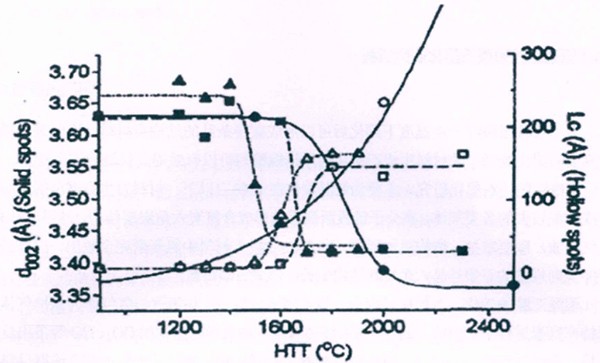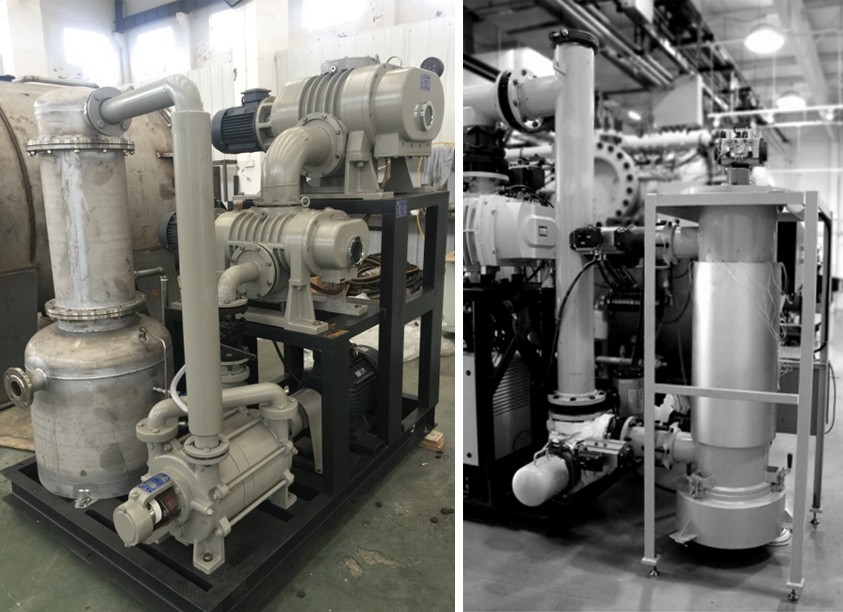During the carbonization process of PI film, carbonization and pyrolysis begin at 600 ℃, and the amide ring breaks along C-N, C=O bonds, releasing small molecule gases such as N2, CO, CO2, and forming benzene ring compounds with conjugated nitrile groups. After a temperature of 800 ℃, it undergoes further thorough cracking and molecular recombination, resulting in the condensation of aromatic heterocycles, gradually forming a hexagonal carbon mesh layer resembling graphite. It is fully carbonized at a temperature of 1300-1600 degrees Celsius, with a heat loss of 35-40%. The gas produced by pyrolysis is discharged from the carbonization furnace to the outside through a vacuum pipeline to a filter, and then reaches the vacuum pump outlet for discharge. Due to the sudden reduction in pipeline volume and temperature, it will accumulate or condense into solid or viscous too liquid substances in the vacuum pump, vacuum pump pipelines, valves, and other paths, commonly known as "tar". Causing easy blockage of pipelines, damage to vacuum valves, decreased vacuum degree in carbonization furnaces, and frequent occurrence of vacuum pump jamming.

In the actual use of carbonization furnaces, many types of filters have been designed, roughly divided into forced water cooling type, ceramic ring placed filter, paper filter type, stainless steel wire ball or a combination of the above forms. However, in practical use, the results are very unsatisfactory. After 1-2 heats of use, it is necessary to clean the pipeline and vacuum system. Most of the cleaned waste residue and wastewater are directly discharged at will, which poses a great threat to environmental pollution.

With the cooperation of our company with customers and suppliers, and drawing on the experience of TITAN DS, we have made multiple improvements and successfully solved this problem. In practice, it is easy to use and occupies a small area, achieving the effect of cleaning every 5-6 months.